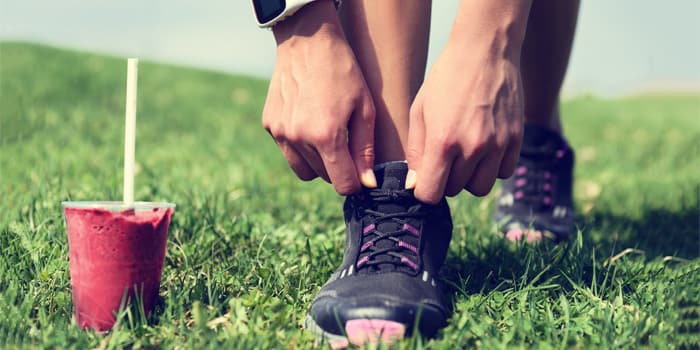Can Beetroot Juice Make You Faster?

By Dana Robinson
At first glance, there’s not a lot to love about beetroot juice: It tastes bitter, lingers on the tongue, and can color your urine and stool an alarming (but harmless) shade of red. Yet it has nevertheless become one of the hottest topics in nutrition since creatine, and regularly makes headlines as the go-to performance elixir of many top athletes and teams, including Olympic marathoner Ryan Hall and the Auburn University Tigers football program. The reason: A handful of studies have shown that it can shave minutes off your run time, boost stamina during high intensity exercise, and improve blood and oxygen flow to working muscles. It may even be able to help your body acclimatize to high altitudes, according to a recent report by Swedish and Norwegian Scientists.
“There’s little doubt that it works,” says Susan Kleiner, Ph.D., R.D., author of The Powerfood Nutrition Plan. “But what we know from scientific testing is that results are largely dose dependent.” Everything hinges on the nitrate content.
Like many deep-rooted vegetables and leafy greens, beets are rich in nitrates, which your body converts to nitric oxide. “This molecule [often referred to by its chemical shorthand, NO] is widely accepted as a potent vasodilator, helping to widen blood vessels,” said Emily Cope, R.D.N., C.D.N., a clinical dietitian at Highland Hospital, in New York. And therein likes the connection to sports performance: As blood vessels “open up,” they’re able to deliver more oxygen and nutrients—including glucose and amino acids—to working muscles.
Not all nutrition scientists are on board with beets. Indeed, a 2015 study by UPENN researchers in the journal Applied Physiology, Nutrition, and Metabolism nearly ended the sport’s community’s love affair with the vegetable. It found that participants who drank a nitrate-packed beetroot shot prior to performing forearm exercises didn’t experience a significant increase in vasodilation or blood flow. But critics were quick to point out the study was performed on “healthy, young males” whose blood vessels were probably plenty pliable to begin with, and thus needed little help dilating. The study also focused on forearm exercises, not the kind of hard endurance training for which beetroot juice is typically prescribed. The study authors conceded the latter point, admitting that “blood flow enhancement might only be apparent at higher intensity exercise, which promotes conditions that favor the creation of nitric oxide.” Then British researchers published a study in the European Journal of Applied Physiology showing just that beetroot juice can, in fact, boost stamina and performance through vasodilation, and athletes and coaches everywhere were happy again. Beetroot juice was back on the table.
“The weight of scientific evidence shows that beetroot juice can boost performance during hard endurance events,” says Kamal Patel, M.P.H., director of Examine.com, an independent resource for supplement information. “But if you lift weights, you’re still out of luck, as it likely doesn’t offer much of a benefit for strength training.”
So how much juice do you need in order to notice a difference? “One or two cups—the amount used in most studies—should supply enough nitrates,” says Patel, who recommends making your own juice to save money. “Red beets are the surest bet, but yellow beets will likely also work.”
Here’s one of our favorite pre-workout beetroot juice recipes, created exclusively for Beachbody by Franci Cohen, NASM-CPT, owner of Fuel Fitness, in Brooklyn. If you don’t have a juicer, just throw all of the ingredients into a blender, and then press the resulting mash through a fine mesh strainer until you extract all of the juice. For maximum benefit, drink it 2 to 4 hours before working out. If you exercise first thing in the morning, drink it before going to sleep the night before.
Pre-Workout Performance Booster:
• 4 red beets (apple-sized)
• 4 carrots
• 2 lemons (with skin)
• 1 tablespoon fresh ginger
• 1 whole apple (with skin)
If you decide to purchase beetroot juice instead of making it, be wary of claims about nitrate content. “Labels aren’t going to be super accurate,” says Patel, explaining that the amount of available nitrates often decreases between the time of manufacture and the time of consumption. “We see the same thing with fish oil—two big studies recently showed that labels are 90 percent inaccurate with regards to how much omega-3s they contain.”

